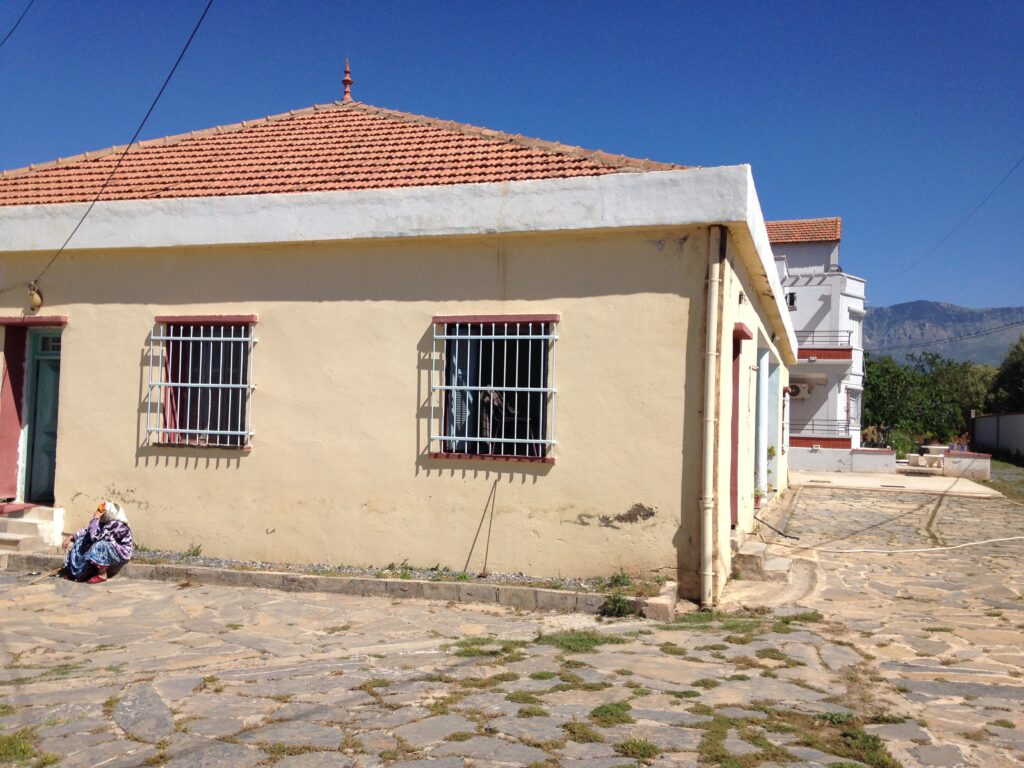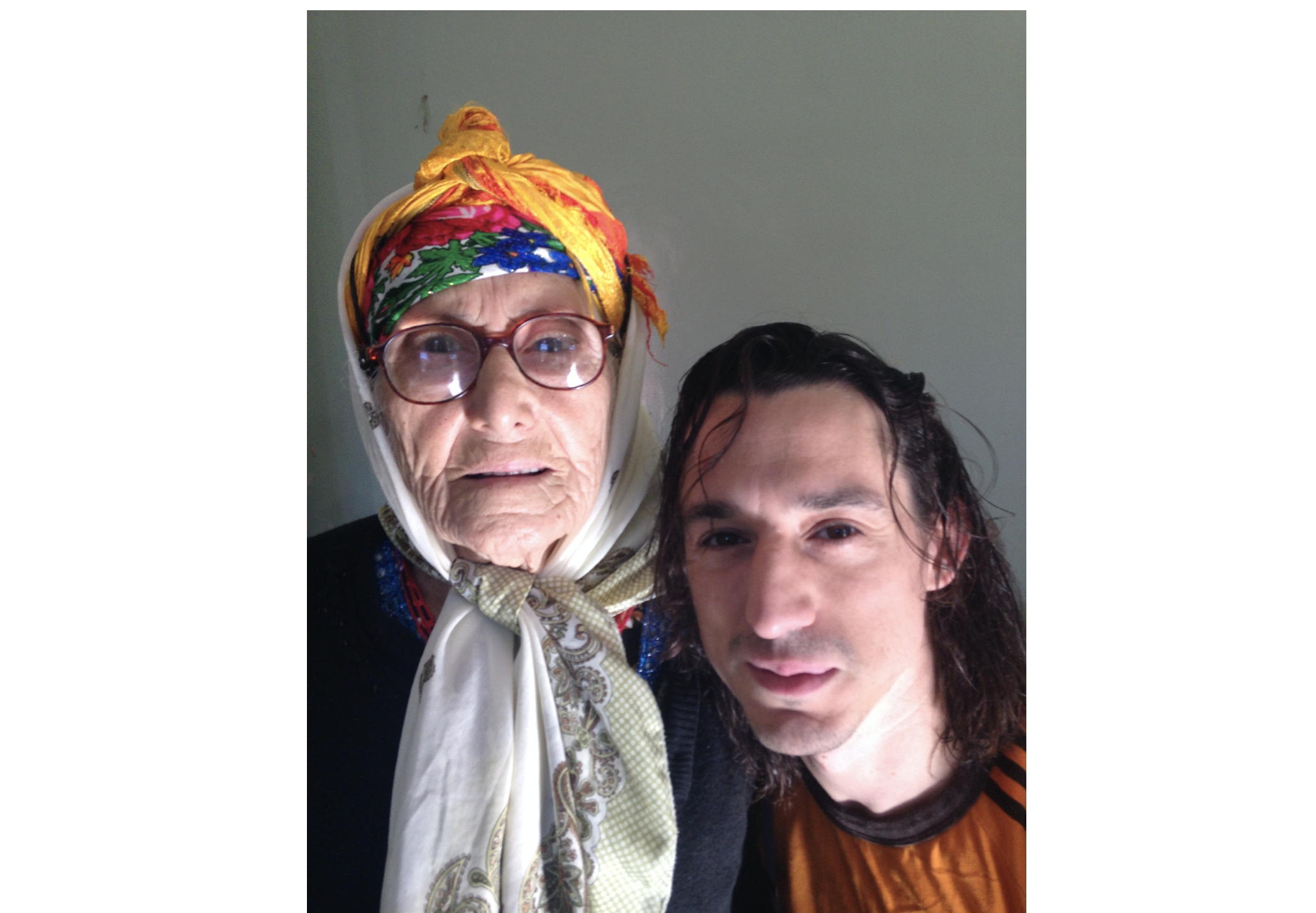My grandmother on my mum’s side, Patricia, died young, in her early fifties. My memories of her are faint, the approximation of several early childhood encounters at best. When I think of her now all I recall is a cloud of cigarette smoke and skin the texture of cracked leather. Apparently she died while she was screwing the lodger. I don’t know why this fills me with pride, but it does. My grandfather on that side, a surly big Yorkshire coal miner with an impeccably drab northern wit, I knew slightly better.
My Algerian grandfather, Kaci, whom I am named after, was something of a folk hero back in Kabyle. At age 17 he was condemned to life imprisonment on Devil’s Island, the notoriously brutal French penal colony portrayed in the film Papillion, on account of a murder he didn’t commit. Although I met Kaci when I was a little boy, I have no recollection of our encounter whatsoever. By the time of my second visit to my family’s village Maillot at around the age of 11, he had already passed away.
The image of Kaci sweating it out in the malarial tropics of French Guyana chained to a posse of murderers, rapists, thieves and thugs on behalf of his as yet unborn children and grandchildren is one dear to my heart; at least (I hope) a few shreds of that kind of resilience must linger on somewhere in me. Less familiar, or rather a total mystery to me up until now, is the story of his wife, my only surviving grandparent. I have always known her simply as Jida, the Berber word for Grandma.
We’ve never really been able to have a conversation in person: she is illiterate and unlike most Algerians, doesn’t speak French, only Berber, my French is sub-pigeon and nobody in Maillot speaks good English. The only person in my life who speaks Berber and English is my dad, so without him around, it’s sort of impossible. I went to hang out with her in the mountains a couple of years ago on my own. She’d hobble into my room every afternoon and sit silently on the bed while I was playing guitar or listening to tunes. She had a peculiar fondness for the Taxi Driver soundtrack and a song I’d written called ‘Waterfall’. Me and my little brother Nathan were due to make our way back there this year to celebrate her turning 100, and to write and perform with the Fat Whites, but of course Covid put a stop to all that. We’d made it as far as Algiers and then decided to return to the UK at the last minute for fear of inadvertently killing her.
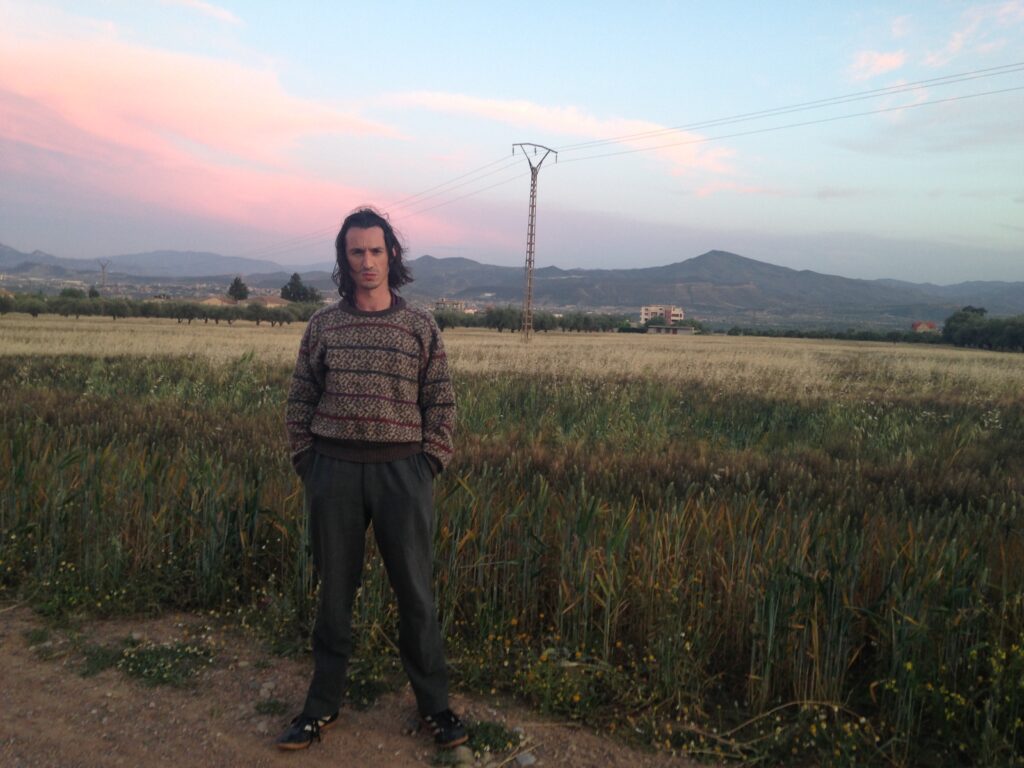
The following interview was conducted over the phone shortly after all that disappointment, with my dad Bashir acting as translator…
Lias: What is your name and where are you from?
Grandma: My name is Melkhir Oult’ Mohand, the wife of Kaci, from Kabylie.
Lias: Can you remember your childhood?
Grandma: When I was young I was the last child, the youngest, I had three sisters and one brother. We lived in a place called Athoualvanes, between Maillot and Djurdjura.
Lias: What did your parents do?
Grandma: My father had a clothes shop.
Nathan: Did he make them himself?
Grandma: He bought them in Algiers and sold them in the village. My mum worked in the house and on the land.
Lias: Did you and your sisters go to school?
Grandma: No, none of us.
Lias: What made up your day to day lives?
Grandma: During the winter we collected olives, during the summer wheat and barley… My dad was the only one who had a shop so he spent his time there looking after the place… We also had a flock of sheep…
Lias: Was it a struggle? Were you a happy family?
Grandma: No I didn’t suffer during my upbringing as my father was generous and owned land, we were comfortable…
Lias: How long did you live with your parents?
Grandma: I got married at age 12, for the next 14 years I was with my husband. I had five kids, three daughters and two boys.
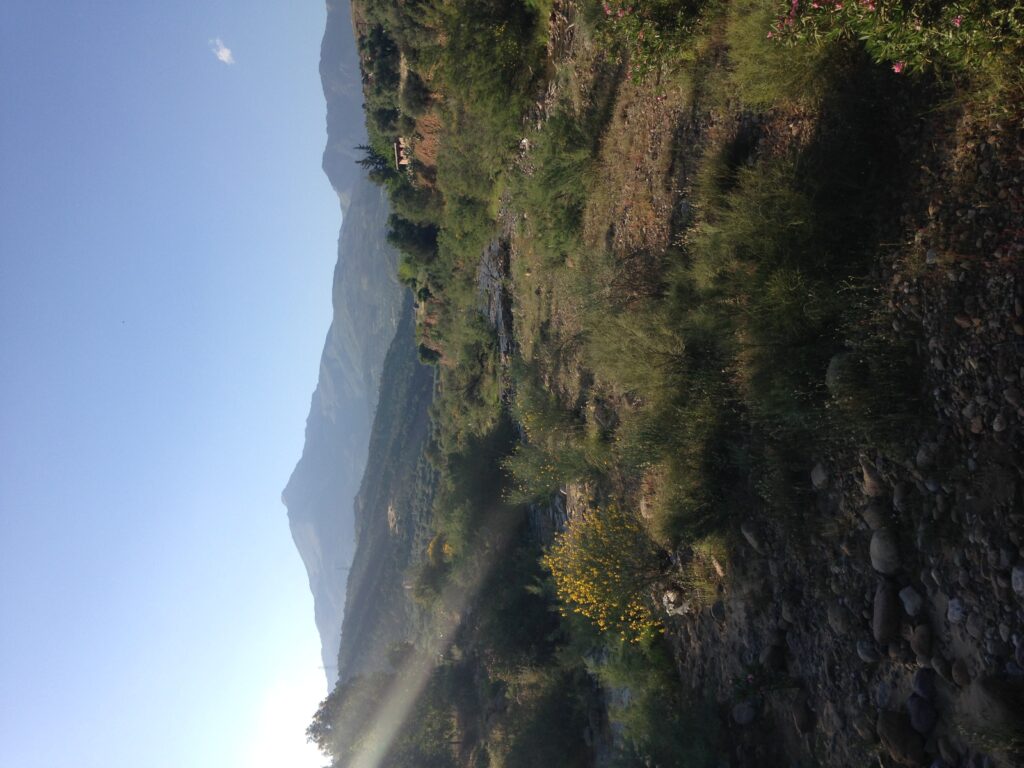
Lias: Where did you live? The same village? Maillot?
Grandma: I married into a family called Mahmmoudi, their land was 20km from Maillot, they had 150 hectares of land, a very wealthy family…
Lias: They were farmers as well? Olive oil?
Grandma: Yes olives, but more big scale agriculture, potatoes, iffalfel, but in large quantities…
Lias: Were you happy to leave your family?
Grandma: Yes because this man loved me. He was 14 years older than me, the same distance between me and your grandad. I had my first child aged 13 and one month, a boy, followed by another boy. I was too young to know how to look after a child so my husband hired servants to help me.
Lias: What happened to your first husband?
Grandma: My husband died during a pandemic, like a plague, it came from rats I think. Before he died I lost four of the children. My eldest son Sala was the first to go, then his brother Amar. The third to die was Zahra, then Thesaadith. Once my husband passed away I returned to my family with my only surviving daughter who was 14.
Lias: Do you remember what French rule was like? Did you have any interaction with them?
Grandma: I barely had a clue they were there…
Lias: How much of a gap was there between your first family and you marrying my grandad?
Grandma: I was 27 when I married your Grandad. My surviving daughter from the previous marriage, Brahi, passed away five months after my husband died. His family were going to take me on but after I lost the final child the tie between the two families was severed and I returned to my own family.
Lias: Did you want to remain a part of his family? Were you glad to return to your own at all?
Grandma: I wanted to go back until I lost my final daughter. My husband was an only child, I didn’t want to be a part of another household in that family. I didn’t want to marry one of his cousins. We were in love. When I returned from his family I was with my father for a year and a half before your grandfather asked for my hand in marriage…
Lias: How did that happen? Did you court? Was it arranged?
Grandma: My grandma, called Messaouda Oult’ Ali, she was the daughter your great great grandpa Ali Ou’l Hadj (same ancestry as Saoudi family). In those days there was no courting, all marriages were arranged! Your grandad had two full brothers and one half sister. When your grandad was sent off to Devil’s Island his wife was remarried to one of his brothers, when he returned from prison (20 years later) this brother was himself in prison. There was only his other brother Amar really trying to find him a wife, he was the one that eventually connected him with me.
When your grandad came back from prison we were married very quickly, in order to avoid friction with his first wife, whose new husband, his brother, was now in prison. We married within a month of his return from the penal colony, during Ramadan, and had our first child within a year, your auntie Zahara. I was 28 at the time.
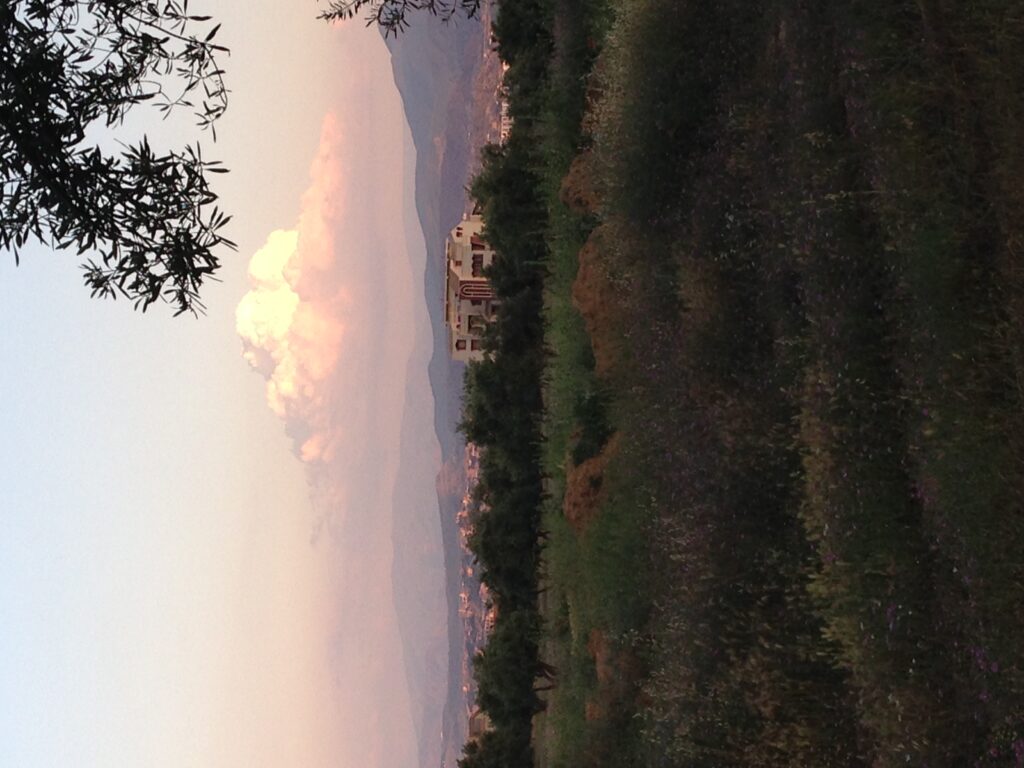
Lias: Kaci had been in prison for a long time, how do you think it affected him? How did it affect his view of the world?
Grandma: He was a man the like of which the world will never see again. When I married him he could no longer speak Berber, in prison only French was spoken, it took him two years to re-learn his own language, to learn how to speak to me. For two years it was like living with someone without a voice!
Lias: What was your second wedding like?
Grandma: It was two weddings on the same day, a joint ceremony, me and your grandad and his brother Amar and his new wife. Me and her were brought to the wedding on horseback. Because your grandad was very well respected after enduring life in Cayenne, because there was a massive amount of suffering in his absence, famine and pestilence, a huge number of people were in attendance. Folks were dancing and screaming with joy.
Lias: Could you describe a Berber wedding? The music, the food…
Grandma: Couscous with meat, bread with olive oil. The music was played on flutes while the girls sang, people played the derbouka. The girls and the boys were kept separate of course. The party would go on for two days. The first day you go to the house of the bride with gifts, then the next day the bride is brought to the family of the groom, when the real party begins.
Lias: Would you say it was the happiest day of your life?
Grandma: When he proposed, I didn’t want to marry him because he was too old. My mother told me to take pity, it wasn’t his fault, he’d been in prison since he was 17.
Lias: How long did it take you to become really close?
Grandma: Haha! It’s a difficult question to answer! As soon as I arrived he spoiled me rotten, it didn’t take long to fall in love.
Lias: You didn’t have any doubts?
Grandma: When I met him the first time he didn’t look like a normal Algerian, he looked like a Frenchman, and he was a giant, so I was scared of him, the man just didn’t look like an Algerian to me and he couldn’t even speak Berber! But he did everything to please me and to make me feel comfortable. He brought me gold from Devil’s Island. I felt very lucky in the end to have such a man.
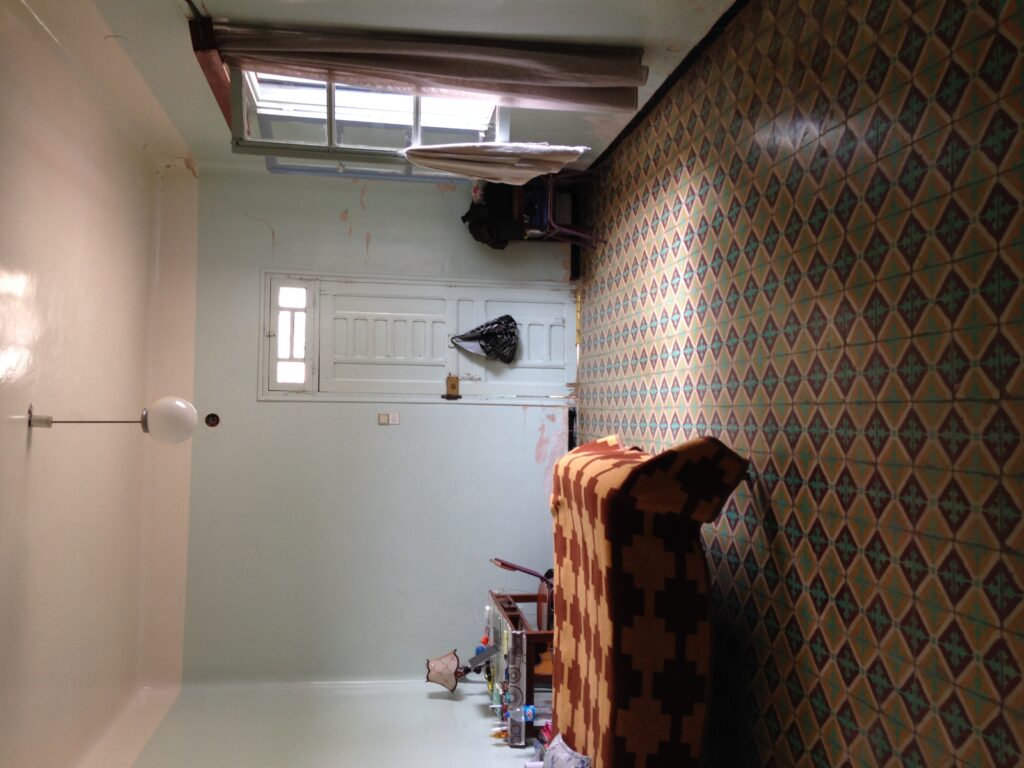
Lias: For someone who has no idea about life in Kabyle, could you describe day to day life in the period.
Grandma: In my previous marriage I had been a kept woman, there was very little work to be done. When I married your grandfather I helped out with collecting figs, grapes and vegetables, little bits of work on the land, but nothing too heavy. This was before he got his job of course (head of council in Maillot)…
Lias: You didn’t work with animals or anything like that?
Grandma: After my first husband died, I came into possession of a flock of sheep, ten sheep at first but they bred well and I made a little business out of that. I kept them until your grandfather had to escape to France at the outbreak of the war of independence, by which point I could no longer look after them, so they were sold at market and a cow was purchased instead. For many years we had this cow, then your grandad’s brother sold it and I never received a penny! Your father will tell you that when he was young your grandad wouldn’t give him a penny, ‘go and study!’ he would say, so the kids would come to me for handouts. When I lost my flock it made it difficult to continue my generosity!
2 years after the birth of your auntie Zahara I had a boy, named Hamid, who died after 9 months. I believe he died of the same illness as my first five children. We called it the illness of Chorfa, an area in Maillot. We had no doctors in those days to work out what was actually going on. I believe it was something to do with a kind of curse. The baby would cry and shake, but with no fever, after two days he was dead.
At this point I ask about the war of independence and my father interjects with some background information: French soldiers swarming onto the land, random shootings, stories of brutality in other villages, murdering livestock, a climate of terror and deep trauma that left my grandmother dependent on Valium for most of the rest of her life. She would have nervous seizures/breakdowns, she would faint, and in order to revive her they would have to place a knife in one of her hands and place some perfume under her nose. She was taken to the best doctors my grandfather could afford in Algiers to be treated for PTSD…
Lias: Why did Kaci disappear to France?
Grandma: Your grandad was working in the town hall as the secretary general under the French. When the war started the FLN told him he had to stop working, the French told him he had to persist, he was thus a marked man one way or another, so he fled to France.
Lias: How did things change after the revolution? How were things when Kaci returned? You were left with his brother while he was away, what was different about life in that period?
Grandma: Because of my upbringing I’d been spoiled all my life. Kaci’s brother was a very hard man, he made me work like a slave. I was sandwiched between a bully and the French, it was the worst time in my life. When I went to the doctors in Algiers, they asked whether or not I’d spent time in prison, that’s how badly shaken up I appeared to be. Your Grandad’s brother, Dahman, he wasn’t evil, he was just a slave driver, and with the war raging women had no choice but to work hard on the land in place of all the absent men.
Nathan: Were you a fan of Elvis Presley? What music did you listen to when you were younger?
Grandma: You’d hear it at parties sometimes. In the past, before things became more Islamic, people used to listen to a lot of Western music.
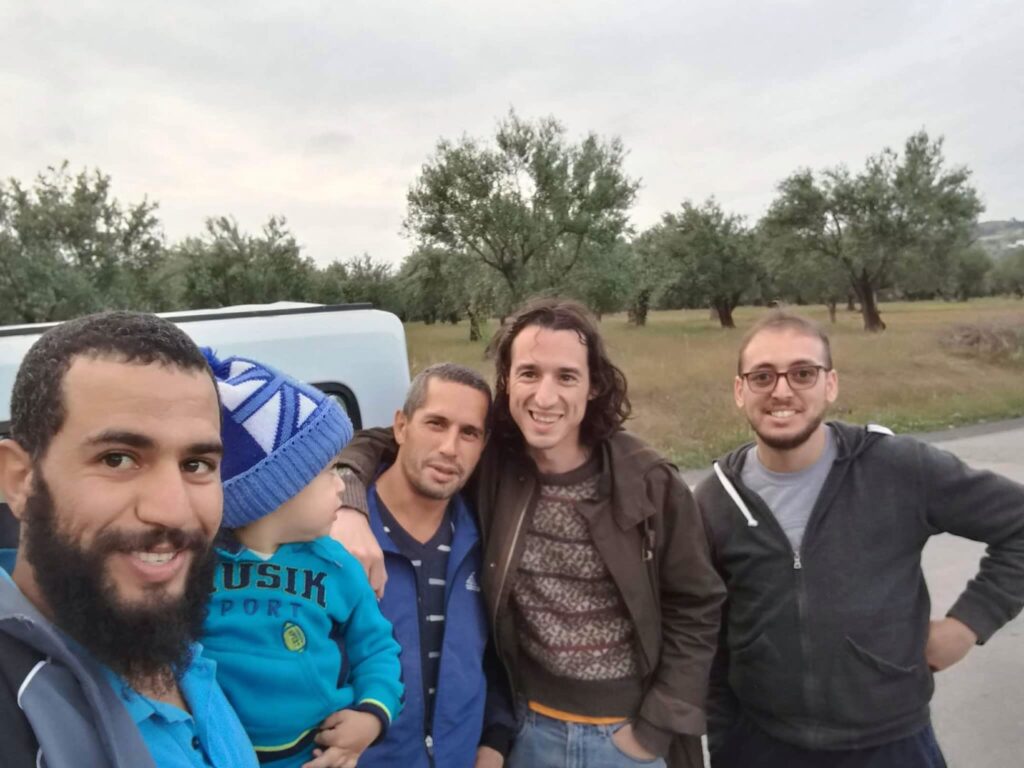
Nathan: Do you feel like the climate has changed since you were a little girl?
Grandma: It’s changed a lot. In nature and in society. In nature, every winter there was snow, and therefore plenty of water. We had four seasons. Now it’s far too hot. As far as society is concerned, people have become far more selfish, you can’t trust peoples’ word anymore.
Lias: What is the most beautiful part of Berber culture? And what is the worst?
Grandma: There is almost nothing left of true Berber culture…
Lias: What do you miss specifically?
Grandma: A lot of things have changed. In the past, for instance, they had a thing called ‘Thimshrats’, where rich villagers would gather and purchase a bunch of animals, slaughter them, then share the flesh with all of the poor. Customs like this made sure that people with money would never look down on the poor. There was a basic level of respect. Everything has changed, in the past people used to be huge, now they are all small. Algerian men have shrunk. The Berber of those days were strong, courageous, helpful… totally different. The people had nothing, no electricity, nothing like that, but we had respect, we had community.
Lias: If you could visit one place on earth where would it be?
Grandma: I’ve already been to Mecca. The only place I want to go now is to return to your grandfather’s side. I visited England once to see your father, I loved it. I never got a chance to see any of the world so it was very special for me. When my husband was alive I was never able to visit anywhere. When I was in England the only reason I came home was to look after your uncle Abder, the youngest of the brothers, the baby!
Lias: If you had to be re-born as an animal which animal would you be?
Grandma: A human. When you go you never come back.
Nathan: What’s your favourite animal then?
Grandma: Sheep.
Lias: My dad was the only one of your four boys to marry a foreigner, how did you feel about that?
Grandma: I found Bashir a wife before he left for England, a woman connected to the family. On the day he left for England he asked me to drop that agreement because he didn’t know when he’d be back.
Lias: Did you get on with my mum when she came to live with you after they first married?
Grandma: I spent nine months with your mum, ask her about that!
Lias: I have and she speaks very highly of you.
Grandma: I wrote a poem about England stealing him, would you like to hear it? I’ve always written poems in my head, as I get older I’ve written more and more, it’s how I remember things…
Lias and Nathan: Wow, yeah of course…
Grandma:
Monday morning dawning as Bashir he packs his luggage
Aboard a plane abroad he’ll skip the oceans rolling roughage
His final destination England, a land both damp and grey
With not one word of English, to help him on his way
Mother do not worry! If destiny offers up sufficient years
One day I will return to you, and I’ll be an engineer!
Grandma: We may never see each other again, if that’s the case I wish for you only peace. And that you never fight with your brothers.
Lias Saoudi
